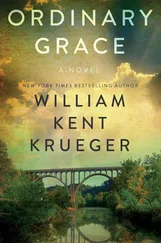♦
At high tide, as they had arranged, Giel Hoekstra was waiting for him on the quayside at Brinkman’s Wharf on Smallgains Creek where visiting boats were allowed to moor. Giel was standing on the quayside, pacing around, smoking, a squat, burly man with his longish hair in a small pony-tail. He’d put on weight, had Giel, since they’d last seen each other, Jonjo thought, quite a gut on him now. They embraced briefly and slapped each other’s shoulders. Giel showed him the powerful cabin cruiser moored by the quayside that he’d crossed the Channel on: white, raked, clean lines, two big blocky outboard motors on the stern.
“We be in Havenhoofd in three hours,” he said. “Nice little marina. No questions. I am friend for the harbourmaster.” He grinned. “Let’s say — new friend.”
“I can pay for all this,” Jonjo said, handing him a wad of notes. “Look, they’re all euros.”
“No need, Jonjo,” Giel feigned being offended. “Hey. I do this for you — you do it for Giel Hoekstra, one day. No need, please.”
“It’s your money, Giel.”
There was something different about his tone of voice. Giel took the money.
♦
Jonjo stood in the cabin with the wheel in his hand — Giel had gone down to the head to take a leak — and enjoyed the sensation of steering this powerful boat, with its creamy boiling wake, away from England towards his future. The remorseless vibration of the twin engines drumming through the deck reinforced this idea of steady purpose, of smooth untroubled progress, of the inevitability of their arrival at their destination.
He took a deep breath, exhaled. He had hoiked The Dog out of the hole, fitted the lead to his collar and walked back towards the yacht club and the boat yard. Then he had removed the collar (with his name and address imprinted on the dangling steel coin) and had improvised a noose, of sorts, and tied The Dog to the railings by the boat yard. He gave The Dog a pat, said a hoarse goodbye and strode away. He looked back, of course, and saw The Dog sitting on his haunches, licking at something on his side, completely unperturbed. Jonjo had tossed the collar into Smallgains Creek and had walked on. A bark, a yowl — was that too much to hope for? Somebody would take charge of that dog in ten minutes, that was the thing about basset hounds — they were irresistible.
Still, he felt reassured, obscurely pleased at his weakness, not condemning himself, concentrating on the feeling of the engines thrumming through the decking, the vibration travelling up his legs, almost sexually arousing, in a funny sort of way. Quiet, steady purpose. Yes, that would be his motto, now he was free, now he was shot of everyone and everything. And his quiet steady purpose would be directed, he decided, towards one end: he would find Adam Kindred. He had the scooter’s licence plate number — he had paid that piece of filth £1,000 for the scooter’s licence plate number — and that was all he needed. That had been Kindred’s downfall: there was a trail now — electronic and paper, from the scooter to its owner — where there had never been a trail before. When it all went quiet, when the toxic dust had settled, when everyone had forgotten about John-Joseph Case, he would come back from Amsterdam to England, secretly, silently, find Adam Kindred and kill him.
ALLHALLOWS-ON-SEA. A GOOD NAME FOR A PLACE, A PLACE ON THE Kent shore of the Thames estuary. Adam stood and looked north across the mile or so of water to Canvey Island opposite, on the Essex shore. It was as good a spot as any, he thought, to claim that here the river ended and the sea began. He turned to the east and looked at the high clouds — cirrostratus — invading the sky from the south, lit by a strong, afternoon late-summer sun. Could be bad weather, threat of thunderstorms…You felt yourself on the edge of England here, he thought, surrounded by sea, continental Europe just over the horizon. The air was bright and hazy and there was just a hint of coolness in the estuarine breeze. Autumn coming, finally, this year of years beginning to draw to its close.
Adam, Rita and Ly-on had left Allhallows-on-Sea with its vast caravan-amusement park and had walked along the coastal track towards Egypt Bay. The great flat expanses of the Kent marshes, with their winding fleets, their dykes and drainage ditches, were on their left, the wide river glinted, with a nacreous sheen, on their right, and their shadows were cast strongly on the path behind them as the sun occasionally broke through the ragged, high film of clouds. They sauntered along, carrying their plastic bags that contained their picnic, Ly-on occasionally scampering down to the small strips of sand and shingle to pick something up or shy a stone into the water. Ly-on was taller and slimmer, Adam thought, since he had last seen him, his pot belly gone. He was still not sure if he was any happier, however.
When Adam had decided to go looking for Ly-on, his conscience prodding him, he had been reluctant to return to The Shaft — too many risks, too many people who might recognise him — so he had revisited the Church of John Christ, thinking that, of all places, this was one that had known Mhouse, might have some record of her and what had happened to her son. He put his badge on, for old times’ sake, and presented himself at Bishop Yemi’s office. Bishop Yemi wasn’t in, he was told, the Bishop was running late at a meeting with the Mayor at City Hall. Adam said he’d come back another day. But as he was leaving he saw that the door was being opened for the evening service by Mrs Darling, ‘John 17’ herself, who was also setting up the welcome desk, a few blank ‘John’ badges fanned out in front of her in case some potential converts wandered in.
Adam introduced himself: John 1603.
“I remember you,” she said suspiciously. “You’ve smartened up, John.”
“Do you remember Mhouse?” he asked.
“Course I do. Poor dear Mhousie. Bless her. Horrible thing that happened. Horrible.”
“Do you know what became of her son, Ly-on?”
“Ly-on’s very well, being well looked after.”
This news had cheered him, unbelievably. He felt a sense of relief wash through him that was so intense he thought he might need to sit down.
“Where is he? Do you know?”
“He’s at the Church of John’s orphanage in Eltham.”
“Can I visit him?”
“You’ll have to talk to the director — but seeing you’re a fellow ‘John’, I think that might be OK.”
“Who’s the director?”
“Hang on — I’ll get a letter with his name on.” She went and found some headed notepaper and pointed the name out: Kazimierz Bednarczyk, ‘Director of Special Projects’. Adam noted the empurpled, embossed solidity of the letter head—‘THE CHURCH OF JOHN’ and its prominent sunburst logo, its registered charity number. Some C-list celebrities were on its roster of’honourable patrons’, a devout backbencher, a chat-show host, a born-again member of a boy band. The Church of John was not sitting on its hands, that was for sure. An avenue of bright tomorrows stretched ahead for Bishop Yemi.
Later that day Adam telephoned the number on the notepaper and was told by a friendly young woman that they did indeed have a young boy at the Eltham orphanage called Ly-on. Ly-on ‘Smith’—nobody knew his last name, including the boy himself, so he’d been called ‘Smith’ pending any future adoption. Adam said he was a family friend and would like to take him out for the day, if that were possible. Oh yes, we encourage visits and trips out, he was told. There would need to be a brief meeting with Mr Bednarczyk first and of course there was a fee of £100 .
Читать дальше












